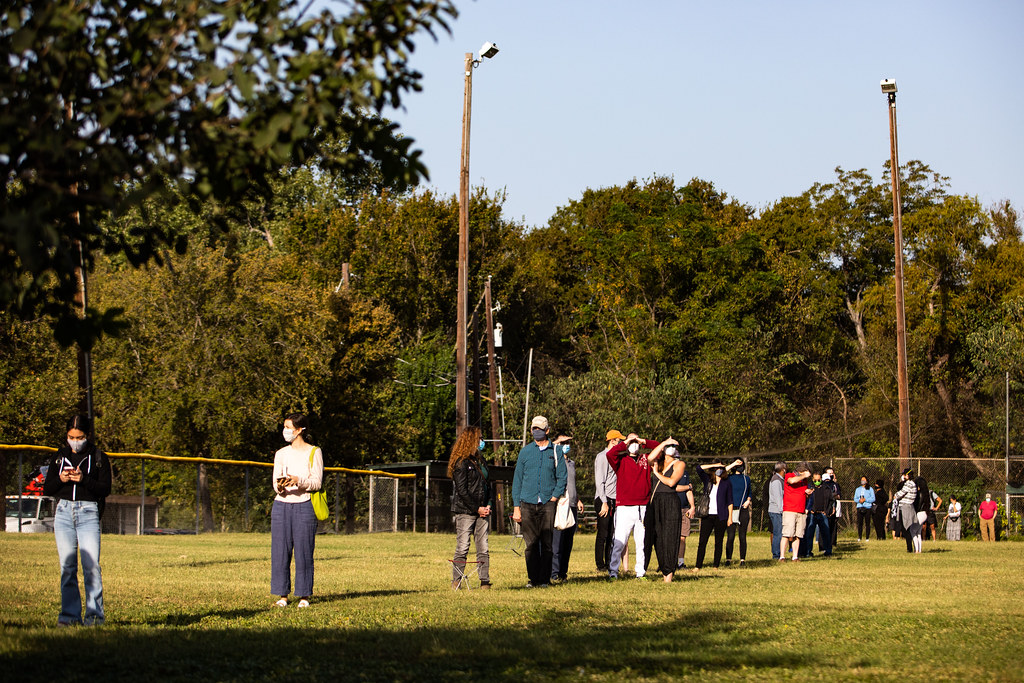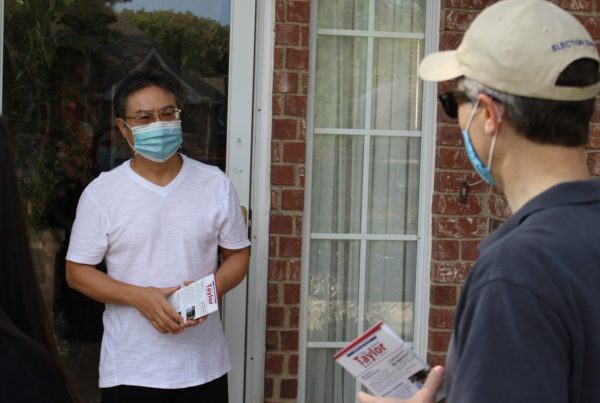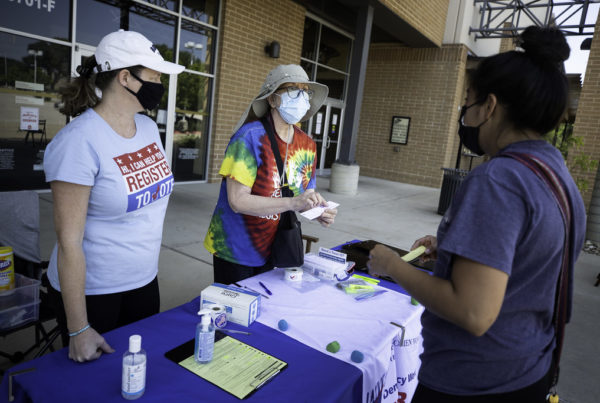In recent elections, the 10 biggest counties in Texas have moved further to the left than the rest of the Lone Star State. If it were up to those counties alone, Texas would have gone to Hillary Clinton in 2016 instead of Donald Trump, and Beto O’Rourke would have won the 2018 U.S. Senate race. But Texas officeholders have remained solidly Republican.
Dan Balz, chief political correspondent for The Washington Post, says Texas is the most intriguing political state in the union because of that dynamic.
He told Texas Standard that Joe Biden winning Texas would represent a “seismic impact” on the politics of 2020. He doesn’t expect that to happen; he has been skeptical of past predictions that Texas could flip to the Democrats. But if it did, the repercussions would be significant for this election.
“The number of electoral votes Texas has would break the back of President Trump,” Balz said. “He would not be able to win the election.”
Pundits have speculated that long early voting lines in Texas mean extremely high Democratic turnout. Balz said data experts are cautious when it comes to predicting the election based on guesses about who’s standing in voting lines. Because many balloting rules have changed, it’s also difficult to compare early voting and absentee ballot numbers for 2020 to past years.
“At this point, with only a week of early voting in Texas, we’re still flying a little bit blind,” Balz said. “Certainly, Democrats are encouraged by what they think they are seeing, but I don’t know if they have a definitive answer.”
Balz said there are more competitive congressional districts in 2020 than there have been in the past – many in the suburbs of Houston and Dallas. He said District 23, a huge area that begins in San Antonio and hugs the border, and from which Republican Will Hurd is retiring this year, is likely to go Democratic.
Balz said Democrats are doing better in suburbs because of changing demographics, growth in those areas and the extent to which Trump has “turned off” voters, especially women.















